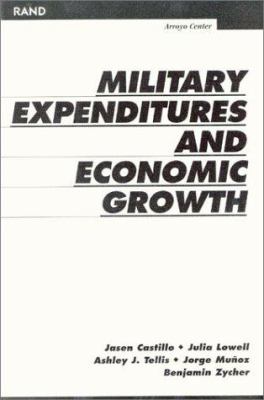
Book
|
Military expenditures and economic growth
Copies
2 Total copies, 2 Copies are in,
0 Copies are out.
Title
Military expenditures and economic growth
Call No
UA17
Digital Link
Subjects
Language
English
Published
Santa Monica, CA : Rand, 2001.
Publication Desc
xiv, 116 p. : ill. ;
ISBN
0833028960 (pbk.)
LCCN
00062667
Dimensions
23 cm.
MLA
APA
Chicago
0
/
0








